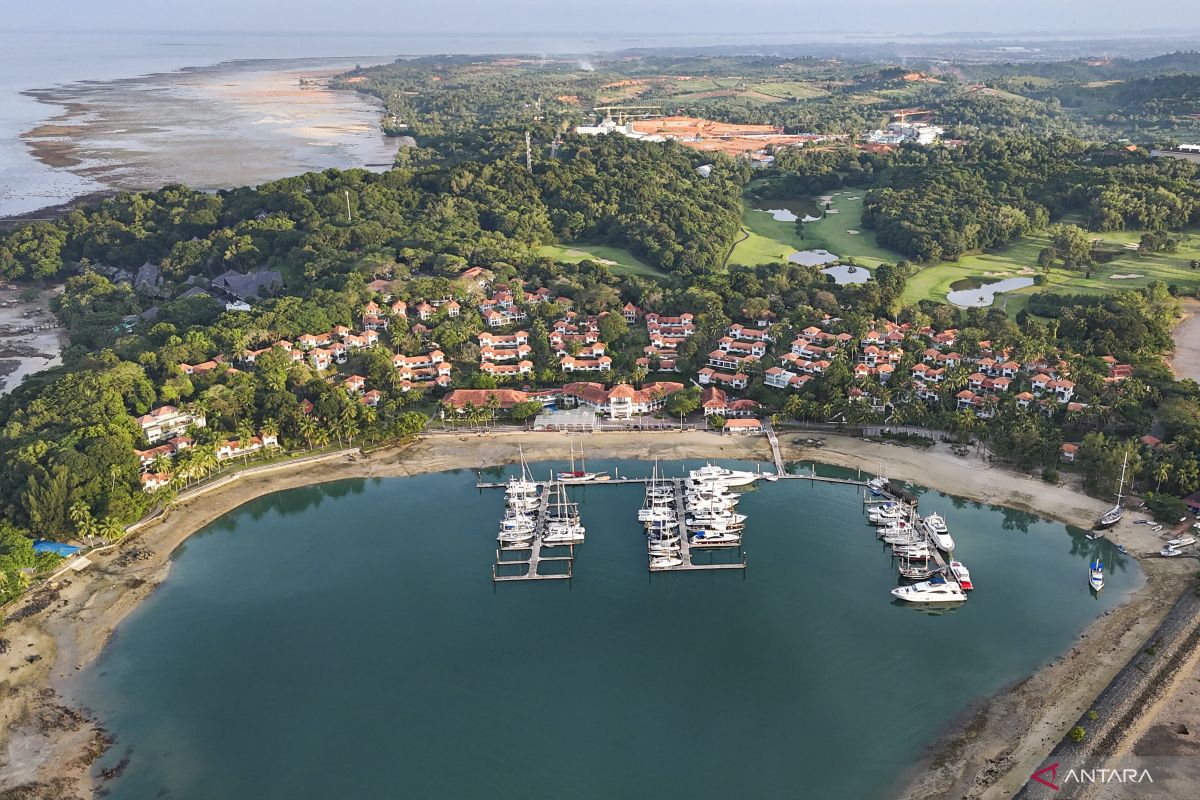Table of Contents
- 0.1 Investment Potential of Special Economic Zones
- 0.2 Strategic Projects on the Horizon
- 0.3 Global Engagement and Economic Relations
- 0.4 Implications for the Technology Sector
- 0.5 Engage with the Future
- 1 Considering the geopolitical context, how might Indonesia’s SEZ strategy be impacted by global economic uncertainties and shifting trade dynamics, particularly in light of its relationships with major powers like China and the US?
Indonesia Expands Special Economic Zones to Attract Foreign Investment
Jakarta (ANTARA) – President Prabowo Subianto is prioritizing the expansion of special economic zones (SEZs) across Indonesia as a strategic move to bolster foreign investment. This directive was shared by Coordinating Minister for Economic Affairs, Airlangga Hartarto, following a meeting with the president on Tuesday. The president’s commitment to developing these zones aims to attract investments, particularly from nations he has recently visited, including China, the United States, Peru, Brazil, the United Kingdom, and the United Arab Emirates.
Investment Potential of Special Economic Zones
“President Prabowo wants these economic zones to continue to be developed so more investment can come in, especially from the countries he recently visited,” Hartarto emphasized. The SEZs are designed to create a favorable business environment by offering incentives such as reduced taxes and regulatory ease. The government’s push comes at a time when Indonesia is looking to optimize its industrial capabilities.
As of the third quarter of 2024, total investments within these zones reached an impressive Rp68.43 trillion (approximately US$4.3 billion), effectively absorbing 34,199 workers into various industries. Cumulatively, investments in Indonesia’s SEZs have now hit Rp242.5 trillion, resulting in the creation of 151,260 job opportunities across 394 companies.
Strategic Projects on the Horizon
In addition to the SEZ expansions, Hartarto reported discussions concerning national strategic projects. President Prabowo has set a clear timeline for these initiatives, with a goal of completing all strategic projects by 2024 to 2025. “Eighteen projects are expected to be completed this year, while 30 more will be finished in 2025,” noted Hartarto.
These projects are critical to enhancing the country’s infrastructure and complement the SEZs, which play a pivotal role in facilitating foreign direct investment. By concurrently advancing infrastructure and improving regulatory frameworks, Indonesia aims to position itself as a leading investment destination in Asia.
Global Engagement and Economic Relations
Prabowo’s recent world tour signifies an essential shift in how Indonesia is engaging with foreign investors. During his visits, various economic and investment agreements were established, reflecting a growing global trust in Indonesia’s market potential. The focus on SEZs aligns with the government’s overall strategy to increase export value and enhance competitiveness on the global stage.
Economists have largely welcomed these developments. "The emphasis on special economic zones not only attracts investment but can also foster regional development and innovation," noted Dr. Rahmat Kartono, an economic analyst at Jakarta Institute of Technology. "By creating hubs for business, technology transfer, and skill development, Indonesia is taking a significant step towards becoming a more resilient economy."
Implications for the Technology Sector
The technology sector stands to benefit substantially from the growth of SEZs in Indonesia. With increasing investments, there is potential for the establishment of tech incubators and innovation centers within these zones, fostering entrepreneurship and technological advancement. Companies in technology and related fields may find Indonesia an appealing location to set up operations, given the strategic incentives provided by the government.
Furthermore, the integration of digital infrastructure within SEZs can transform them into thriving ecosystems for tech startups and multinationals alike. The anticipated influx of foreign talent and expertise could bolster Indonesia’s technological capabilities and drive further economic growth.
Engage with the Future
As these initiatives unfold, the implications for Indonesia’s economy, particularly the technology sector, will be closely monitored. The government’s approach to expanding SEZs could catalyze significant transformations in trade, export value, and employment. Those with a vested interest in the evolution of Indonesia’s economic landscape should pay close attention to these developments.
What are your thoughts on Indonesia’s strategy for expanding special economic zones and attracting foreign investment? Share your insights and engage with us in the comments below.
For more insights on global economic trends and technology advancements, you can check out relevant articles from TechCrunch, The Verge, or Wired.
Considering the geopolitical context, how might Indonesia’s SEZ strategy be impacted by global economic uncertainties and shifting trade dynamics, particularly in light of its relationships with major powers like China and the US?
## Indonesia’s Economic Momentum: Attracting Investment Through Special Economic Zones – A World Today News Interview
**Welcome to World Today News. Today we’re discussing Indonesia’s strategic push to expand its Special Economic Zones (SEZs) to attract foreign investment. Joining us are two distinguished guests:**
* **Dr. Elisabeth Wijayanti:** An economist specializing in Southeast Asian development at the National University of Singapore.
* **Mr. Budi Tjokroprawiro:** A senior analyst at a leading Indonesian investment consulting firm, focusing on infrastructure and foreign direct investment.
**Welcome both. Dr. Wijayanti, let’s start with the overarching strategy. President Subianto’s focus on SEZs seems central to Indonesia’s economic goals. What are your thoughts on the potential impact of this strategy?**
* **(Allow Dr. Wijayanti to provide her perspective on the potential benefits and challenges of SEZs for Indonesia’s economic development.)**
**Mr. Tjokroprawiro, the article mentions significant investment already flowing into these zones. Can you elaborate on the types of industries attracted to SEZs, particularly considering the president’s recent visits to countries like China, the US, and the UAE?**
* **(Allow Mr. Tjokroprawiro to discuss specific industries and investment trends driven by SEZs and the potential impact of recent diplomatic efforts.)**
**Dr. Wijayanti, the article highlights the importance of regional development facilitated by SEZs. How do you see these zones impacting Indonesia’s economic landscape beyond immediate investment figures? Will they contribute to reducing regional disparities?**
* **(Allow Dr. Wijayanti to discuss the potential for SEZs to drive regional development and address economic imbalances within Indonesia.)**
**Turning our attention to the technology sector, Mr. Tjokroprawiro, the article suggests SEZs can become hubs for innovation and tech startups. Do you foresee Indonesia becoming a major player in the global tech scene thanks to this strategy? What challenges might Indonesia face in attracting tech talent and investment?**
* **(Allow Mr. Tjokroprawiro to elaborate on the potential of SEZs to foster technological development in Indonesia and discuss potential obstacles.)**
**Both guests, looking ahead, President Subianto has set ambitious timelines for completing national strategic projects. How crucial is the convergence of infrastructure development with the expansion of SEZs for Indonesia’s long-term economic success?**
* **(Encourage both guests to offer their perspectives on the interconnectedness of infrastructure development and SEZs and their collective impact on Indonesia’s economic future.)**
**Thank you both for sharing your insights. This discussion highlights the exciting possibilities and challenges facing Indonesia as it seeks to leverage SEZs to attract foreign investment and propel itself onto the global economic stage. We encourage our viewers to share their thoughts and opinions on this important topic in the comments section below.**


